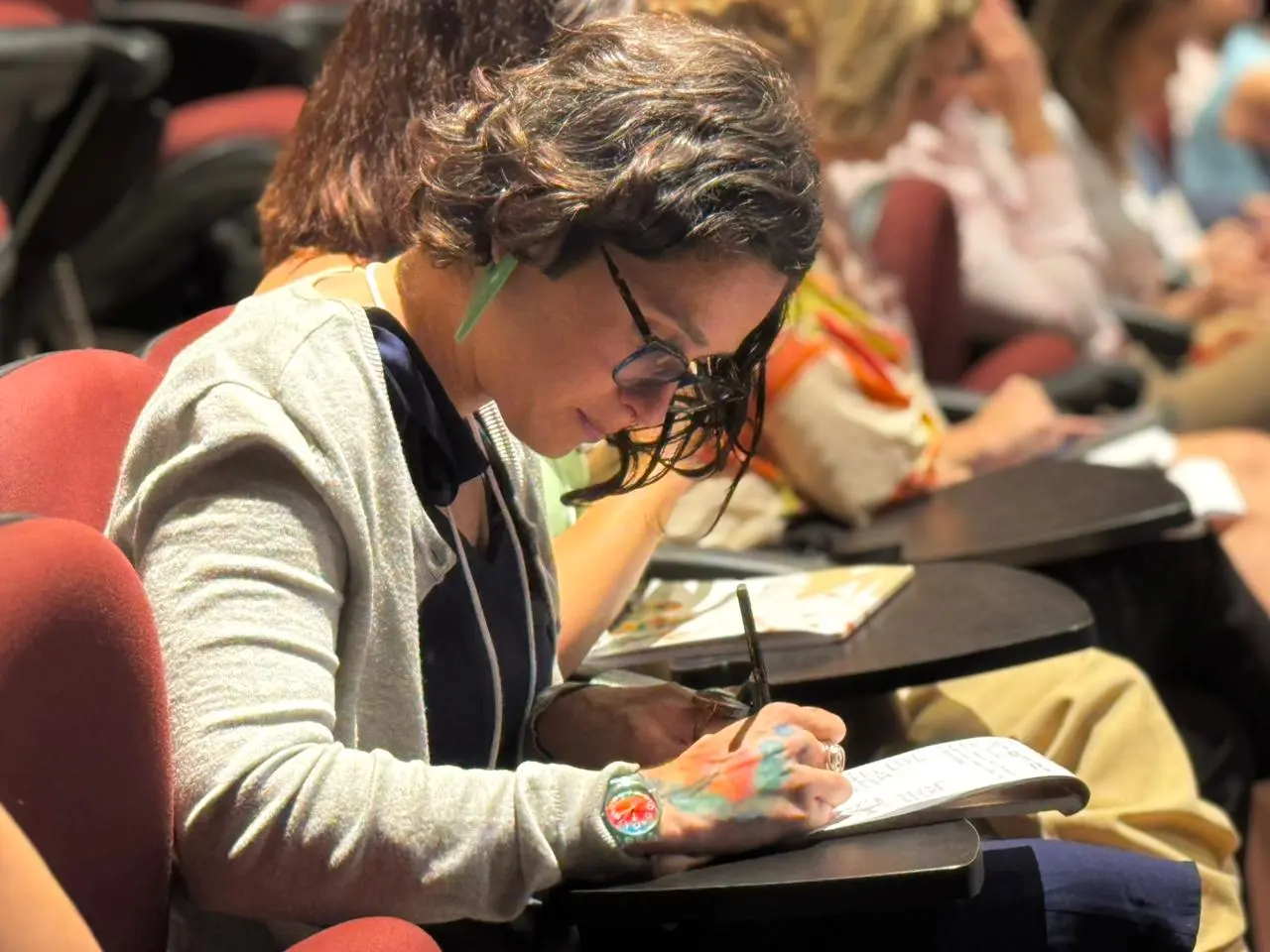Identifying the different forms of sexual violence and knowing ways to welcome, report and protect victims is valuable information that can change the future of children and adolescents in vulnerable situations. The Orange May campaign sheds light on the topic, with the 18th being the Day to Combat Abuse and Sexual Exploitation of Children and Adolescents.
The Santos Dumont Institute (ISD) held, last Tuesday (28), the Seminar for Strengthening the Network and Care for People in Situations of Sexual Violence in the municipality of Macaíba, with the aim of informing and promoting the exchange of experiences between different agents working to tackle this problem.
“The reason for this meeting is to strengthen our municipal network. A child in a situation of sexual violence is enrolled in school and is cared for in primary care, specialized care or a regional hospital. So, assistants, health professionals, education, guardianship council, we are all here focusing on the same person”, explains the ISD social worker preceptor, Alexandra Lima.
The Seminar was part of the calendar of activities of the Fazer Direito's Project, which has served and accompanied people in situations of sexual violence in Macaíba since 2016. The service is offered at Anita, the ISD unit where the Institute's health care is concentrated.
The social worker presented the Municipal Flow for the Care Network for People in Situations of Sexual Violence in Macaíba, identifying suitable places to meet local demand. Anita, UPA Aluízio Alves and Hospital Alfredo Mesquita Filho are the reference points for welcoming victims in the municipality.
Based on a technical note published by the State Department of Public Health of RN, Alexandra highlighted that actions must be articulated and coordinated, in addition to including adequate infrastructure for qualified listening, quickly and maintaining the confidentiality and privacy of victims.
The moment also included the participation of psychologist Gilliard Laurentino, consultant at the Casa Renascer Children and Adolescents Defense Center (CEDECA). The institution to combat sexual violence has been operating in Rio Grande do Norte for 33 years, and was classified in 2007 as a Defense Center by the National Committee to Combat Sexual Violence of the Ministry of Human Rights and Citizenship.
According to the consultant, Brazil recorded 13,652 reports of 31,755 acts of violence against children and adolescents in 2023. In Rio Grande do Norte, there were 3,092 reports of 7,360 acts of violence. The data comes from Dial 100, the Federal Government's official channel dedicated to reporting human rights violations. The majority of rapes victimize girls, who suffer in more than 75% of cases in the country and 77% in RN.
Gilliard, however, points out that there is underreporting. “Macaíba only has one case of sexual violence registered on Dial 100, this really caught my attention because I’m sure there are many more”, he observes. According to him, all people who occupy spaces in public places frequented by children and adolescents must be prepared to identify the signs and report them in case of suspicion.
The Seminar was attended by representatives of the Guardianship Council, employees from the area of Social Assistance, Education and Health of Macaíba and Natal, the Alfredo Mesquita Filho Regional Hospital, the Macaibense Association of Institutional Reception (Amai), the Lar Foundation Celeste Auta de Souza, and the RN Public Ministry, as well as residents, postgraduate students and ISD interns.
Reception
Sexual violence is understood as any and all conduct that compels a child or adolescent to practice or witness sexual intercourse or a libidinous act, including exposure of photos or videos, electronically or otherwise. Sexual abuse and sexual exploitation are the main forms of manifestation of this violence.
Since 2017, Law 13,431 regulates and organizes the system for guaranteeing the rights of children and adolescents who are victims or witnesses of sexual violence, creates mechanisms to prevent and curb violence and establishes assistance and protection measures for children and adolescents in situations of sexual violence.
Reception and care must take place in the context of comprehensive care. Actions must be accessible to the entire population without discrimination and must include emergency measures, monitoring, rehabilitation and treatment of the possible impacts of interpersonal violence. “Each of us is responsible”, emphasizes Alexandra.













